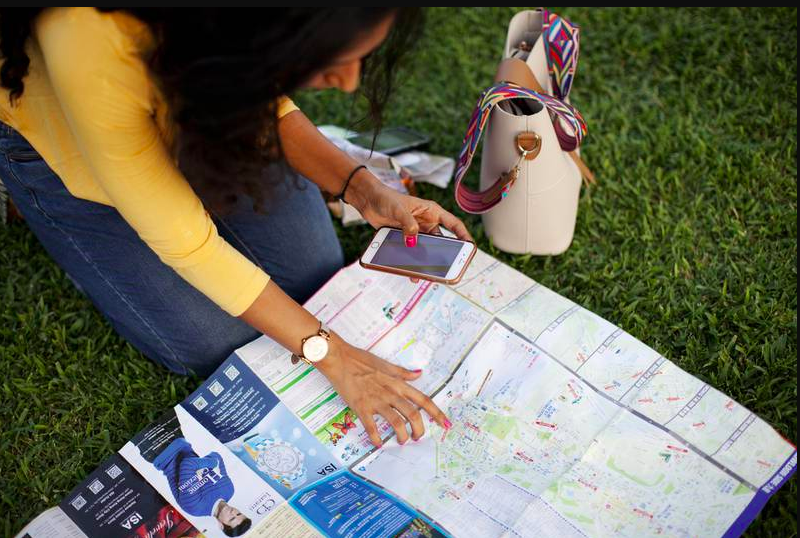The biggest boon of them all, particularly in this part of the 21st century, is technology. There’s really little doubt about it. Information in the palm of our hands. Just when we need it. The quick and easy accessibility of it all. The convenience of knowing things and having access to it when we want.
It’s enabled us to have a parallel identity, particularly when you think about social media. Many call it a digital footprint.
But as with every flip side to a coin, there’s a certain degree of immersibility into technology as well. Obsession even could be an appropriate term.
And a lot of it can be measured by the way we use GPS on a daily basis.
One of the big paradoxes of technology is that it takes away just as much as it gives.
The GPS is undoubtedly one of the primary offerings from the sphere of tech. But perhaps a little overindulgence on our part where it comes to the GPS has paved way to a situation where we don’t apply ourselves.
Perhaps it could even be argued that we have ceased to, on the whole.
Long gone are the days where your average cab driver moved about sans a satellite map or tech-assisted guidance
Today, regardless of the shape or condition of the car or nevermind its make, it can’t be that a cab will journey a single mile without the guidance of the GPS.
What this incessant habit has done to us, it could be argued, is that it has rubbed off on us as well.
When was the last time you completely lost your way and had to interact with a group of absolute strangers to find your way?
That everything is available to us by the mere click of a couple of buttons or at best, by click opening a map on the phone has limited our interaction with the wider world or so it seems.
What we tend to forget in the whole hullabaloo of the tech-influenced way of being is that we are stepping away from the world where we had to remember things.
Where a little bit of effort was required on our part.
But it’s also led to a world where we, quite simply, possess poor or at the most, very little navigational skills.
Besides actually affecting the vocation of some around the world, this has adversely impacted our personalities.
To give conclusive evidence, the following is what the National News website had to say on how the overdependence on GPS has grossly affected employment and the way we remember:
In 2014, the Ordnance Survey, the UK’s national mapping service reported that paper-map sales now accounted for only 7 per cent of annual turnover, as sales slipped below two million for the first time since the business was launched in the 1970s.
GPS is surely employment killer to some!
But to move further, when we actually create a spatial map or that sort of thing in the mind, it helps us figure out new routes and even find shortcuts to where we’ve got to go once we have a certain geography figured out.
But when we purely rely on external cues, we don’t tend to work out our brains. Believe it or not, some researchers from the McGill University in 2010 even cautioned that being overdependent on GPS could even lead to the onset of the Alzheimer’s disease.
Well and truly speaking, much like Blood Pressure, this too is an invisible killer.
That technology is important today cannot be possibly overstated. But that there are also pitfalls to it, the correction of which requires us to check on ourselves is also true at the same time.


